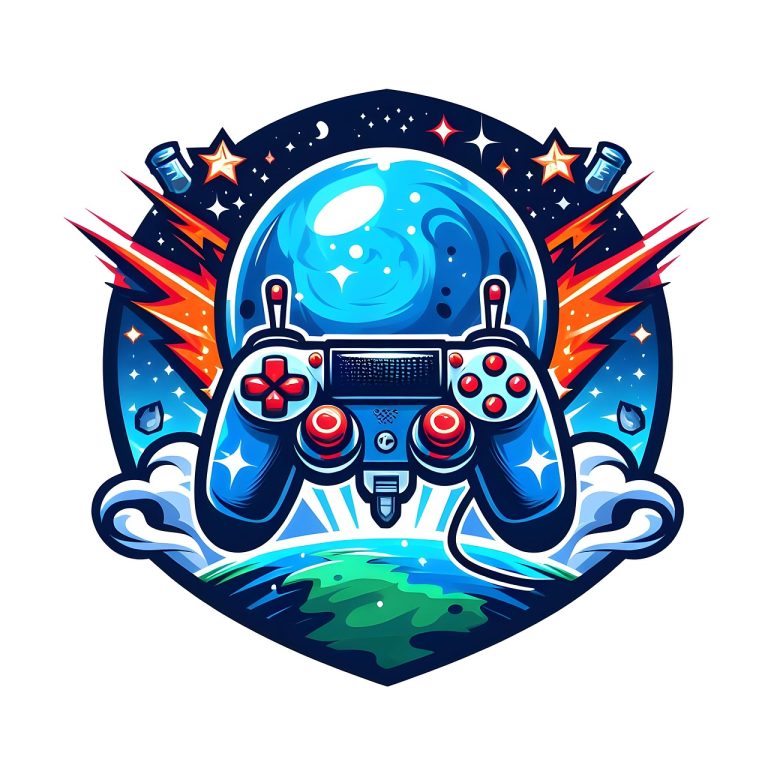
The Role of Video Games in Language Learning: A New Approach to Mastering Languages
In recent years, the traditional methods of language learning have undergone significant transformation. With the advent of technology, new tools and techniques have emerged, offering innovative ways to learn new languages. One such revolutionary approach is the use of video games in language learning. This method not only makes the process engaging but also allows learners to immerse themselves deeply in the language environment. In this blog post, we will explore how video games can facilitate language acquisition, the types of games that are most effective, and the cognitive benefits they offer.
The Interactive Nature of Video Games
Video games are inherently interactive, requiring players to actively participate in various tasks, challenges, and narratives. This interactivity is a key component in language learning. Unlike traditional methods that often involve rote memorization, video games require players to use the language in real-time to progress in the game. This practical usage helps reinforce vocabulary and grammar in a more natural and enjoyable context.
For instance, games like The Sims or Animal Crossing often require players to converse with characters, follow instructions, and complete tasks using the target language. This constant interaction ensures that players are not merely passive learners but active participants in the language acquisition process.
Immersive Language Environment

One of the most significant advantages of using video games for language learning is the immersive environment they provide. Games create a virtual world where the target language is used consistently and contextually. This immersion is similar to the experience of learning a language through living in a foreign country. The player is surrounded by the language in all aspects of the game, which helps improve listening and comprehension skills.
Games like Duolingo and Memrise have embraced this concept by integrating gamified elements into their language learning platforms. These games encourage learners to engage with the language daily, making the learning process both effective and enjoyable.
Types of Video Games for Language Learning
Not all video games are created equal when it comes to language learning. Certain types of games are more conducive to language acquisition than others. Let’s explore the different genres that are particularly beneficial:
- Role-Playing Games (RPGs): RPGs like Final Fantasy and The Witcher series place a strong emphasis on storytelling and dialogue. Players often have to engage in conversations with non-playable characters to advance the plot, providing ample opportunities to practice language skills.
- Puzzle and Strategy Games: Games such as Professor Layton and Civilization require players to solve problems and strategize using the target language. These games help improve critical thinking and language comprehension simultaneously.
- Simulation Games: As mentioned earlier, games like The Sims allow players to create and manage virtual worlds. These games often involve daily life scenarios, making them perfect for learning conversational language skills.

The Cognitive Benefits of Gaming in Language Learning
Engaging with video games for language learning offers several cognitive benefits beyond language acquisition. Research has shown that gaming can enhance memory, improve problem-solving skills, and increase attention span. When players are immersed in a game, they are required to remember dialogues, follow intricate storylines, and adapt to new situations—all of which contribute to cognitive development.
Moreover, video games often involve multitasking and quick decision-making, which can help develop a learner’s ability to process information swiftly and accurately. This is particularly advantageous when learning a new language, as it requires the brain to juggle multiple linguistic elements simultaneously.
Challenges and Considerations
While video games offer numerous benefits for language learning, there are certain challenges and considerations to keep in mind. Firstly, it’s essential to choose games that are appropriate for the learner’s proficiency level. Beginners might find complex games overwhelming, while advanced learners may not benefit from games that are too simplistic.
Additionally, excessive gaming can lead to screen fatigue and reduced motivation. Therefore, it’s crucial to balance gaming with other forms of language learning, such as reading books, listening to podcasts, or engaging in conversations with native speakers. Setting time limits and specific language goals can help maintain a healthy balance.
Success Stories and Testimonials
There are numerous success stories of individuals who have effectively used video games to learn a new language. For instance, many non-native English speakers have reported learning English through popular multiplayer games like World of Warcraft and Fortnite. These games require players to communicate and collaborate with others, often in English, to achieve common goals.

Similarly, language learning communities online have shared testimonials about using games like Stardew Valley and Persona to improve their Japanese skills. The narrative-driven structure and character interactions in these games provide a rich source of language input and practice.
Takeaways
In conclusion, video games represent a powerful tool in the modern language learner’s arsenal. By providing an interactive and immersive environment, they make the process of learning a new language both effective and enjoyable. While there are challenges to consider, with the right approach and balance, video games can significantly enhance one’s language skills. Whether you’re a beginner or an advanced learner, exploring educational gaming platforms like Busuu or participating in language-focused gaming communities can be a valuable addition to your language learning journey.
As technology continues to evolve, the role of video games in education, particularly in language learning, is likely to expand further. Embracing this innovative approach to mastering languages can open new doors and opportunities for learners worldwide.
Future Prospects of Video Games in Language Learning
Looking ahead, the future of video games in language education is promising. With advancements in virtual reality (VR) and augmented reality (AR), learners can expect even more immersive and interactive environments. These technologies can simulate real-life scenarios more vividly, allowing users to practice language skills in contexts that closely resemble actual conversations and interactions.

For instance, VR could enable learners to virtually travel to different countries, experiencing cultural nuances and dialects first-hand. This level of immersion can facilitate a deeper understanding and retention of the language. Companies like Google Expeditions are already exploring these possibilities, offering virtual field trips that could be adapted for language learning purposes.
Integrating Gaming with Traditional Learning Methods
To maximize the benefits of video games in language learning, it’s essential to integrate gaming with traditional educational methods. Combining gaming with classroom instruction, for instance, can provide a more rounded learning experience. Teachers can use games to reinforce lessons, while students can practice what they’ve learned in a more relaxed and engaging environment.
Moreover, educational institutions can develop curricula that incorporate video games as a key component. By doing so, they can cater to different learning styles and preferences, ensuring that all students have access to effective language learning tools. Collaborations between game developers and educators could lead to the creation of customized educational games tailored to specific language learning objectives.
Community and Social Aspects of Gaming
Another significant advantage of video games is the sense of community they foster. Many multiplayer games require players to communicate and collaborate, often with individuals from diverse linguistic backgrounds. This social aspect not only enhances language skills but also promotes cultural exchange and understanding.

Online gaming communities, forums, and platforms like Discord offer learners the opportunity to connect with others who share similar language goals. These communities can provide support, encouragement, and additional resources, creating a collaborative learning environment. Through these interactions, learners can practice conversational skills, receive feedback, and gain confidence in their language abilities.
Measuring the Effectiveness of Video Games in Language Learning
While the potential of video games in language learning is vast, measuring their effectiveness remains a challenge. Researchers and educators need to develop assessment tools that accurately gauge language proficiency gains attributable to gaming. This involves tracking learners’ progress over time, analyzing language use within games, and evaluating the transferability of skills to real-world contexts.
Longitudinal studies and controlled experiments can provide valuable insights into the impact of gaming on language acquisition. By collecting and analyzing data, stakeholders can identify best practices and optimize game-based learning strategies for language education.
Conclusion: Embracing a New Era of Language Learning
The integration of video games into language learning marks a significant shift from traditional methods. As we embrace this new era, it’s crucial to recognize the potential of games to transform how we learn languages. By offering engaging, immersive, and interactive experiences, video games can make language learning more accessible and enjoyable for people of all ages and backgrounds.
With continued innovation and collaboration between educators, developers, and researchers, video games have the potential to become a cornerstone of language education. Whether you’re a student, teacher, or lifelong learner, exploring the world of video games can open new doors to mastering languages and connecting with people across the globe.




